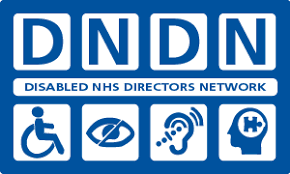Empowering the Disabled: Promoting Inclusivity and Accessibility in Society

The Importance of Accessibility for Disabled Individuals
Accessibility is a crucial aspect of our society that often goes overlooked. For disabled individuals, accessibility can mean the difference between independence and dependence, inclusion and exclusion. It is essential that we recognise the challenges faced by disabled people and work towards creating a more inclusive environment for all.
Barriers to Accessibility
There are many barriers that prevent disabled individuals from fully participating in society. Physical barriers such as lack of ramps, narrow doorways, and inaccessible public transport can restrict mobility and independence. Communication barriers, such as lack of sign language interpreters or alternative formats for information, can hinder access to services and information.
The Impact of Accessibility
When accessibility is prioritised, it has a positive impact on the lives of disabled individuals. Accessible buildings and facilities enable people with disabilities to navigate their surroundings independently and participate in activities that others take for granted. Accessible websites and digital platforms ensure equal access to information and services online.
Promoting Inclusivity
It is important for businesses, organisations, and policymakers to actively promote inclusivity by considering the needs of disabled individuals in their planning and decision-making processes. This includes providing accessible facilities, implementing inclusive policies, and fostering a culture of respect and understanding towards people with disabilities.
Legislation and Rights
In many countries, there are laws in place to protect the rights of disabled individuals and ensure equal access to goods, services, employment, and public spaces. It is important for society to uphold these laws and advocate for the rights of disabled people to live with dignity and independence.
Conclusion
Accessibility is not just a matter of convenience; it is a fundamental human right. By promoting accessibility and inclusivity, we can create a more equitable society where everyone has the opportunity to participate fully and contribute their talents and skills. Let us work together towards a future where disability no longer means limitation but rather diversity and strength.
Understanding Common Questions About Disability
- What is the meaning of whether disabled?
- What is the correct term for disabled person?
- What is the correct definition of disabled?
- What is the meaning of been disabled?
What is the meaning of whether disabled?
The term “disabled” refers to individuals who have physical, sensory, cognitive, or mental impairments that may impact their ability to engage in daily activities or participate fully in society. Being disabled does not define a person’s worth or capabilities; rather, it highlights the importance of creating inclusive environments and providing support to ensure equal opportunities for all individuals, regardless of their abilities. Embracing diversity and understanding the unique needs of disabled individuals is essential for fostering a more accessible and inclusive society.
What is the correct term for disabled person?
When referring to individuals with disabilities, it is important to use respectful and inclusive language. The preferred terminology is “person with a disability” or “disabled person,” as it places the emphasis on the person first rather than defining them solely by their disability. This person-first language acknowledges the individual’s humanity and dignity while recognising their unique experiences and challenges related to disability. It is essential to be mindful of language choices to promote inclusivity and respect for individuals with disabilities in our society.
What is the correct definition of disabled?
The correct definition of “disabled” refers to a person who has a physical or mental impairment that has a substantial and long-term adverse effect on their ability to carry out day-to-day activities. This term encompasses a wide range of conditions and disabilities, including but not limited to mobility impairments, sensory impairments, cognitive impairments, and mental health conditions. It is important to recognise that disability is a diverse and complex concept that varies from person to person, and individuals should be treated with respect, dignity, and understanding regardless of their abilities.
What is the meaning of been disabled?
Being disabled refers to having a physical, sensory, cognitive, or mental impairment that may impact a person’s ability to perform everyday tasks or participate fully in society. Disability is a diverse and complex experience that can vary widely from individual to individual. It is important to recognise that disability does not define a person’s worth or capabilities, and that everyone deserves equal opportunities and respect regardless of their abilities. Providing support, understanding, and accessible environments can help individuals with disabilities lead fulfilling lives and contribute positively to their communities.
Latest articles
Latest comments
Archive
- July 2025
- June 2025
- May 2025
- April 2025
- March 2025
- February 2025
- January 2025
- December 2024
- November 2024
- October 2024
- September 2024
- August 2024
- July 2024
- June 2024
- May 2024
- April 2024
- March 2024
- February 2024
- January 2024
- December 2023
- November 2023
- October 2023
- September 2023
- August 2023
- July 2023
- June 2023
- May 2023
- April 2023
